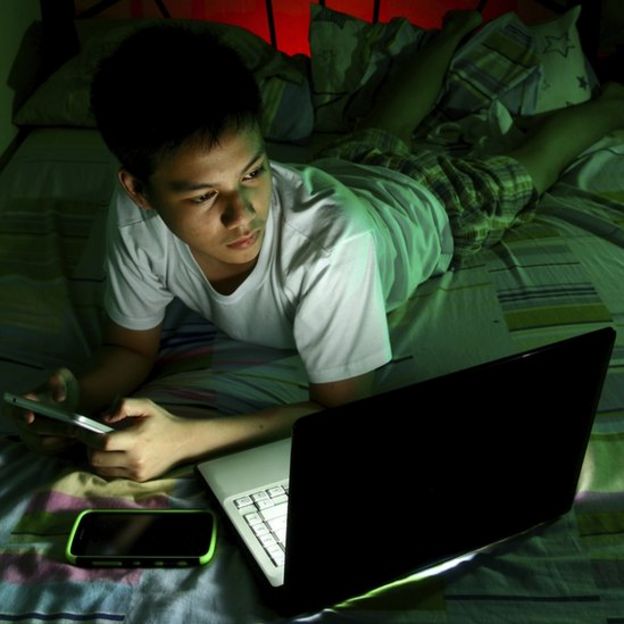Education reporter
An overuse of mobile phones by parents disrupts family life, according to a survey of secondary pupils.
An overuse of mobile phones by parents disrupts family life, according to a survey of secondary pupils.
More than a third of 2,000 11 to 18-year-olds who responded to a poll said they had asked their parents to stop checking their devices.
And 14% said their parents were online at meal times, although 95% of 3,000 parents, polled separately, denied it.
The research was carried out by Digital Awareness UK and the Headmasters' and Headmistresses' Conference.
Among the pupils:
- 82% felt meal times should be device-free
- 22% said the use of mobiles stopped their families enjoying each other's company
- 36% had asked their parents to put down their phones
Of pupils who had asked their parents to put down their phones, 46% said their parents took no notice while 44% felt upset and ignored.
Despite this, only a minority of parents (10%) believed their mobile use was a concern for their children - although almost half (43%) felt they spent too much of their own time online:
- 37% said they were online between three and five hours a day at weekends
- 5% said it could be up to 15 hours a day over a weekend
Research last year by DAUK and HMC showed almost half of secondary pupils were checking their mobile phones after they had gone to bed, amid warnings that they were arriving at school tired and unable to concentrate.
According to the new research, almost three-quarters of pupils (72%) said they were online between three and 10 hours a day - but for 11% this could rise to 15 hours at weekends and holidays and 3% said it could reach 20 hours.
And children's greatest worry about their own online use was lack of sleep, with 47% highlighting it as a major concern.
But among parents, only 10% worried about children's time online leading to sleep deprivation.
 THINKSTOCK
THINKSTOCK
Mike Buchanan, headmaster of Ashford School in Kent and chairman of the HMC, which represents leading private schools, said it was time for parents, teachers and pupils "to rewrite the rulebook" on mobile devices, which "have become an integral part of life at school, work and play".
"Our poll shows that children are aware of many of the risks associated with overuse of technology but they need the adults in their lives to set clear boundaries and role model sensible behaviour.
"To achieve this, we need to join up the dots between school and home and give consistent advice," said Mr Buchanan.
'Wake-up call'
Emma Robertson, co-founder of DAUK, said too few parents knew how long their children were online, particularly at night, "or what they are actually doing online".
"We hope these findings will be a wake-up call for families and motivate them to have serious conversations about the safe and healthy use of technology," she said.
The research comes ahead of the HMC's spring conference, which will explore new ways of working between schools and families in both the state and independent sectors.
Parents and pupils at a leading academy chain, which runs both state and private schools in England, were invited to take part in the research earlier this month.

